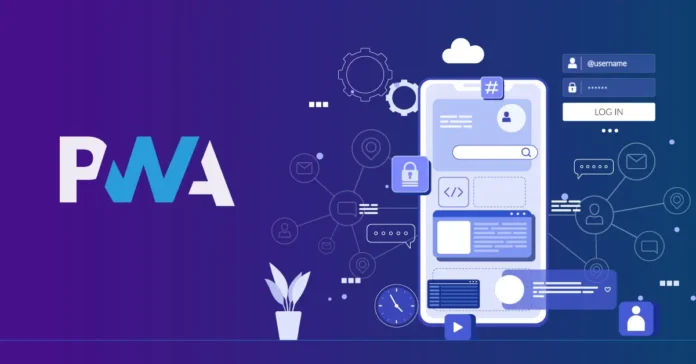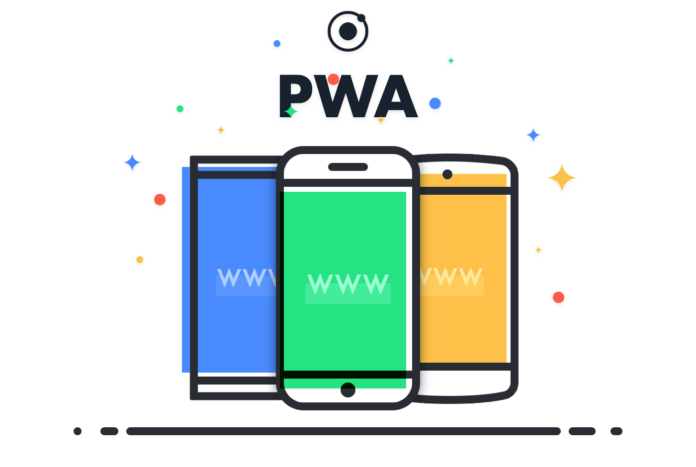The PWA Revolution
With the introduction of Progressive Web Apps (PWAs), e-commerce has seen astounding alterations, fundamentally changing the user experience. The convenience and accessibility for users are increased by these cutting-edge technologies, which enable app-like experiences on online platforms. One becomes aware of the technology’s transformational potential in enhancing user retention and engagement as we dive into the effects of PWAs on various sectors.
Unveiling the Shift towards PWAs

Leading businesses, both big and small, are gaining a lot from incorporating PWAs into their e-commerce operations. Following their conversion to PWA, Twitter, for example, saw an increase in the volume of tweets and user engagement. Uber, the industry leader in ride-hailing, also saw a notable reduction in pick-up times as a result of its PWA’s minimal weight and speedy performance even on 2G networks. These examples demonstrate how PWAs may overcome the constraints of conventional web applications.
The Footprints in Financial Services
Progressive Web Apps (PWAs) have transformed the financial sector, notably financial news, with Forbes’ shift to a PWA demonstrating the technology’s potential, resulting in a twofold increase in user engagement and reduced page load times. PWAs give real-time financial news and updates, even under unpredictable network circumstances, and offer an app-like experience without needing a native app installation, which appeals to consumers with limited storage space or who are hesitant to download several apps. PWAs, which are mobile-friendly, allow financial news companies to reach a bigger audience, thereby improving user engagement. They are aligned with a mobile-first strategy. However, concerns such as browser compatibility, restricted access to native device capabilities, and a lack of user understanding about the benefits of PWA pose difficulties.
The Game-Changing Impact on Online Gaming

Progressive Web Apps (PWAs) have significantly improved the user experience in the online gambling business, especially the performance of online casino apps. For example, renowned Canadian online casinos like Jackpot City and Spin Casino have used PWAs to create a smooth, app-like experience straight into a user’s browser. PWAs, as opposed to standard web applications, include offline capabilities, push notifications, and quicker loading times, all of which improve the user experience dramatically. The Ontario online casino apps and similar services, for instance, are leveraging PWAs to offer enhanced gaming experiences to their users by eliminating reliance on native applications, resulting in less storage consumption and faster updates. They hold the promise of future innovation, such as the introduction of immersive AR and VR technologies that will improve the entire user experience.
Despite these benefits, there are several restrictions that PWAs are now facing and may experience in the future. Access to specific hardware capabilities and native OS functions, for example, may be limited as compared to native programs. Furthermore, not all browsers fully support PWA technology, making wider adoption difficult. End-users’ lack of understanding about the benefits of PWAs might further stymie their adoption. In the future, the online gambling business must continue to innovate and use emerging technology while resolving these restrictions in order to support the creation of new online casino applications and maintain their competitiveness in the dynamic online gaming sector.
The Retail Reinvention
The rise of Progressive Web Apps (PWAs) in the retail sector, as seen by AliExpress’s 82% increase in iOS conversion rates following the launch of their PWA, offers considerable performance gains. Quick load speeds, offline capability, and home screen shortcuts improve user experiences, resulting in frictionless surfing and speedier checkouts. They also use push alerts to keep customers engaged with tailored messaging, updates, and offers, which fosters client loyalty. PWAs, since they are device-agnostic, are available across several devices, expanding merchants’ reach, and removing the requirement for app store downloads, conserving device storage. Despite this, obstacles like limited access to device-specific functionality and possible browser compatibility concerns continue, demanding more enhancements for PWAs’ wider acceptability and optimal purchasing experiences in the retail industry.
Ripples in the Hospitality Industry
The use of Progressive Web Apps (PWAs) has revolutionized customer service in the hospitality industry, particularly in hotels and restaurants. Trivago, a global hotel and housing company, reported a significant 150% boost in user engagement following the implementation of its PWA. PWAs improve the entire user experience because to their fast load times, offline capability, and push alerts. They also make browsing and booking easier, which may increase conversions. Their portability across several devices guarantees consistent access to services, which is a significant benefit for travelers who regularly switch gadgets. Despite the obvious benefits, difficulties such as browser compatibility and limited access to native device functionality continue.
Impact on Marketing and Advertising

Progressive Web Apps (PWAs) have made significant strides in the marketing and advertising industries, offering substantial advantages for user engagement and experience. A prime example of this is Pinterest’s 60% increase in core engagements after launching their PWA. PWAs’ unique features, such as rapid loading times, offline functionality, and the ability to be added to a device’s home screen, dramatically enhance the user experience, thereby driving engagement. Furthermore, push notifications allow businesses to directly engage with users, offering personalized content, promotional offers, and reminders to foster customer retention.
While the device-agnostic nature of PWAs broadens the reach of marketing and advertising efforts across various platforms, certain challenges remain. These include browser compatibility issues and limited access to native device functionalities. However, despite these limitations, the compelling benefits of PWAs are driving more businesses in the marketing and advertising sectors to adopt this technology. This shift towards PWAs is transforming how these industries operate and engage with their audiences, highlighting the potential of PWAs to revolutionize digital marketing and advertising.
Looking Ahead
PWAs are essential for improving the user experience across a range of industries as the digital world continues to change. Businesses looking into the possibilities of PWAs may learn a lot from those that have already made the switch. PWAs have the potential to be the cornerstone of the future of e-commerce and more, with the promises of increased speed, dependability, and engagement. The widespread adoption of PWAs is quickly approaching and promises to dramatically improve user experience and online engagement.









